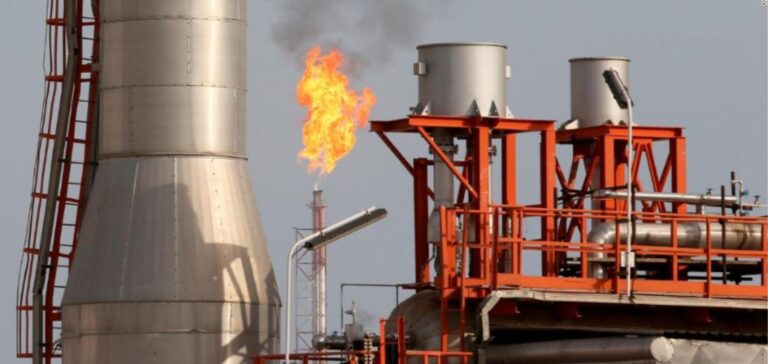On Tuesday evening, Iraqi Prime Minister Mohamed Chia al-Soudani announced that Iraq was in contact with the United States to settle outstanding payments to Iran. These unpaid bills, worth 9.2 billion euros, are the result of former gas imports owed by Baghdad to Tehran.
US sanctions constrain gas payments to Iran
Because of US sanctions against Iran, Baghdad cannot pay Tehran directly for its gas. Until very recently, the money was deposited in an Iraqi bank account, which only allowed Iran to buy specific products in the agri-food and pharmaceutical sectors. The process was always very arduous and marked by delays. To force Baghdad to pay its unpaid bills, Tehran regularly suspends its gas supplies, which are essential for Iraq’s power plants since they cover a third of the country’s needs.
New Iraqi approach to settling unpaid debts to Iran
Criticizing a complex mechanism due to US sanctions, the Iraqi Prime Minister announced on July 11 that Baghdad would henceforth pay for its gas imports by supplying Tehran with oil in exchange.
“At the same time, work is continuing with the American side on outstanding payments, which have fallen to 9.2 billion” euros, Mr Soudani told a press conference on Tuesday evening, pointing out that his country had settled around 1.8 billion euros with Tehran in recent months.
The Prime Minister assured that a delegation from the Iraqi Central Bank and the Trade Bank of Iraq (TBI) had been dispatched to Oman on Tuesday “to agree on a formula for transferring these funds to the Sultanate, in agreement with the US Treasury”.
On July 24, a spokesman for the US State Department referred to the transfer of some of these funds to Oman.
“We think it was important to get this money out of Iraq, because it’s a lever used by Iran against its neighbor,” Matthew Miller had said.
Electricity sensitivity in Iraq and the fight against exchange rate speculation
In Iraq, the electricity issue is extremely sensitive. The country has a population of 43 million and enormous hydrocarbon wealth. The population has to cope with daily load shedding, which worsens during the summer and can sometimes lead to demonstrations.
Mr. Miller had also assured that in the Sultanate of Oman, these sums would be subject to “the same restrictions” as in Iraq: Teheran’s use of these funds for certain purchases would have to be “approved in advance by the US Treasury”.
Currency smuggling network dismantled in Iraq
On Tuesday evening, the Iraqi Prime Minister discusses stabilizing the exchange rate. The dollar can be bought for over 1,510 dinars in Baghdad on the parallel market. Mr. Soudani denounces “speculators” who send currency to autonomous Kurdistan and abroad. The Sûreté Nationale confirms the dismantling of a currency trafficking network. 11 suspects arrested in Baghdad and 12 others in the center and south of the country.
In a press release, the Sûreté Nationale then confirmed the dismantling of a “network of traffickers” who, via “fictitious companies, illegally sent foreign currency abroad, under the guise of commercial operations”.
In Baghdad, security forces arrested 11 suspects and discovered safes containing more than $14 million, according to the statement. Just as 12 people were arrested in three provinces in the center and south of the country on similar charges, according to the same source.






















